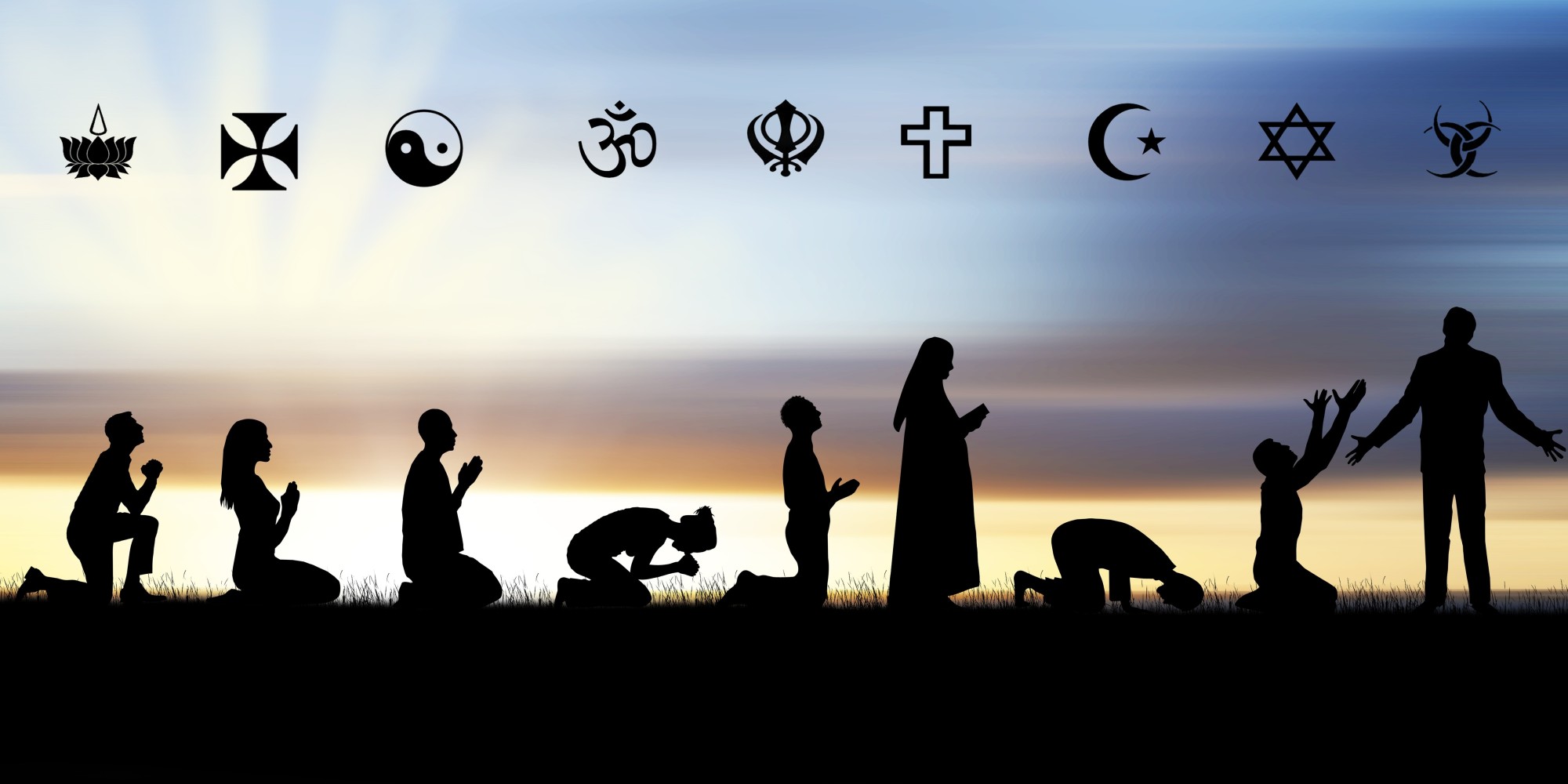What seems to be the general pattern in the revealed religions is that they all describe a period of difficulties and calamities before the final outcome.
What seems to be the general pattern in the revealed religions is that they all describe a period of difficulties and calamities before the final outcome.
We have hundreds of hadiths in which the end of time has been discussed. It is therefore important to clarify the exact meaning and reference to the phrase ‘End of Time’. We will then glance at other religions and their teachings, and finally will focus on the teachings of the Qur’an and hadiths to envision what the future holds, and indeed what may have already begun to transpire. We will refer to the different conditions and outlooks of the human being and the changes and challenges that lay ahead, such as the levels of intellectual understanding and its progress or decline, the levels of morality and religiosity, and so forth.
We cannot find any religion or school of thought that does not deem this an important aspect in its teachings. Some have detailed accounts and teachings – such as Islam – whilst others are not so detailed, although none have been silent on this matter. Most of these religions have a very positive view of the future. Their overall picture of the end of humanity is a bright one. What seems to be the general pattern in the revealed religions is that they all describe a period of difficulties and calamities before the final outcome.
The Islamic View
Islam has a detailed and sophisticated account regarding the end of time. The late scholar Mohammad Baqir al-Sadr, in his discussion on the Mahdi, claims that it is difficult to find another subject in Islam that has been discussed to such an extent, and that has been emphasised upon by all Islamic schools of thought – for example, there are around 400 hadiths on this subject from Prophet Muhammad in Sunni sources.
Another scholar, Lutfullah Safi Gulpaygani – an expert on Shia and Sunni jurisprudence and hadith – published the scholarly work Muntakhab al- Athar fi al-Imam al-Thani ‘Ashar, where he referred to 6207 hadiths regarding the Mahdi narrated from 157 early books of both Shia and Sunni.
There is hope, therefore, that we have the opportunity to touch upon commonality between all Muslims. This subject concerns all Muslims and can bring them closer. I feel that by reading and reflecting on these hadiths we can derive some policies and strategies on how best to prepare for the end of time and how best to serve this cause. Prophet Muhammad said:
نَصَّرَ اللهُ عَبْداً سَمِعَ مَقَالَتِي فَوَعَاهَا وَ بَلَّغَهَا مَنْ لَمْ يَسْمَعْهَا فَرُبَّ حَامِلِ فِقْهٍ اِلَى مَنْ هُوَ أَفْقَهُ
“May God make prosperous and happy the one who listens to my hadith, understands it, and conveys it to others. There are people who carry knowledge and pass it onto others who understand it better.” [1]
The End of Time

Linguistically, there is an important distinction between the terms akhar (‘other’) and akhir ‘end’). When discussing the end of time, we see many hadiths in which the term ‘end of time’ is used. It seems that there are two main usages of this term:
1. A period of time in which Islam appeared and started as the last message of God until the Day of Judgement. Hence, even in the times of Prophet Isa and Musa, Prophet Muhammad is introduced and referred to as the Prophet of the end of time.
2. A shorter period of time before the advent of the Mahdi, and subsequent to that.
These are two usages of the term, though they are related to one another because the end portion of each is identical. In one hadith, Prophet Muhammad brought his two index fingers together and said:
“The day of Judgement and I are [as close] as these two.” [2]
In another hadith Prophet Muhammad calls to his companions near to the time of sunset. He then tells them that their position in the entire time span is like sunset, which is the short amount of time left at the end of the day compared with the entire day that preceded it.
Prophet Musa is quoted to have said:
“At the end of time, a prophet will emerge who will be known as Ahmad; he will be the seal of the prophets and there will be no prophet after him.” [3]
In addition, we also have numerous references from Prophet Isa (Jesus) with regards to Prophet Muhammad as the prophet of the end of time. This all portrays that there was a clear pattern of referring to the end of time as the period near to the advent of Islam, as well as the era in which humanity will end and before the Day of Judgement will start.
Regarding the second usage – this is where we find that the state of affairs will radically change, and this will precede the eappearance of the Mahdi who will establish justice and fair distribution of resources, and be the source of much global improvement.
Hence, these are the two usages of the term ‘end of time’ and both are correct and refer to end of the lifespan of human beings.
References to ‘end of time’ in the lifetime of Prophet Muhammad
History narrates an incident from the life of the Prophet in which he encounters a monk on a trade trip whilst still in his young age. The incident is recorded as a conversation the monk has with two others in the trade caravan. The Prophet and the monk had a conversation in private and then after some time he began to kiss Prophet Muhammad on the forehead, and brought something out and gave it to him, the details of which are not known. The monk then spoke with the two others and said:
This person, by God, is the prophet of the end of time. He will soon be commissioned by God as a prophet and will call to the unity of God; so when you witness him doing this then follow him. [4]
This explains why many Jewish tribes chose to settle in Medina. It seems they knew that there would emerge a prophet of the end of time who will settle in that area, and they wanted to be close to this event so that they could also witness this and enjoy the benefits of being near him. But unfortunately many of them did not believe in him because it was not beneficial for them in a worldly sense. For this reason the Qur’an complains about them, telling them that this man is the same one for whom you were waiting, though now that he has come you are not willing to accept him.
The second usage of the term ‘end of time’
As an overview of the second usage of the term ‘end of time’ – the period around the advent of the Mahdi – according to hadiths, this period will contain many problems, especially problems of a moral nature. Those engaged in mischief will increase in both quantity and in the intensity of their mischief. The corruption practiced in this time will be much greater than at any other time.
There will be unique sins committed that were never practiced before, or were practiced to a lesser extent. This period will be characterised by the collapse of family relations, respect amongst individuals, and deviations and distortions in faith; this time will witness the army of evil in greater numbers than the people who follow the path of God.
However, there will also exist a group of people of sublime quality of the army of God who are much stronger than the believers of any other time, even more than the people at the time of Prophet Muhammad.
To summarise, according to my understanding, both the armies of good and evil will reach their climax; the army of God will never have seen such a flourishing nature, and likewise the army of Satan will never have experienced this kind of quantity or quality. Ultimately, as we shall describe in this series, the army of God will be victorious solely due to quality.
The end of time in other religions
Among the religions that have referred to the end of time, we will make reference to Zoroastrianism, Hinduism, Judaism, and Christianity.
Zoroastrianism
Zoroastrianism [5] believes in three saviours of humanity, the third of whom is the most important and the greatest of the saviours, called Astawat Arata. From their texts, namely the Jamask [6] Nameh, Jamask speaks about the arrival of this saviour at a time when the world is full of betrayal, when promises will be broken, when dishonesty will be rampant, and people will commonly lose interest in religion.

People will be far from God, and oppression and mischief will spread. The situation will be ready for the advent of this saviour. Some signs are:
1. Something will appear in the sky that will be visible for people.
2. At the command of the saviour, angels will come from the east and west.
3. Though the people engaged in mischief and corruption will deny him and call him a liar, he will eventually defeat them.
In another book of theirs, Kitab-e Zand, they refer to a battle between Ahriman (the devil) and Ahura Mazda (the Lord). This battle will rage for a long time, and for most of it the army of evil will be winning, but will never be able to terminate the army of goodness. As the situation becomes intensely difficult, God will send the saviour and the battle will continue for an additional 9000 years. The saviour will ultimately defeat them, and then all of humanity will be prosperous, happy, and will live peacefully.
In this sense, the Zoroastrians have the same general principle as other religions, that there will be much difficulty and corruption before prosperity, albeit the specific details differ between the faiths.
Hinduism
Hinduism also holds the concept of the end of time and a saviour – called the age of Kali. Hindus believe that a saviour will come after the destruction of the world, and that he will take control of the entire world and everyone in it. Every believer and unbeliever will know him and he will be granted whatever he asks from God.
Another text states that in the end there will be a just king who would be the leader and ruler of humans as well as angels. This king will have full control over everything on land, in the oceans, and on mountains. He will have the power to inform them about what is happening in the earth and in the heavens, and none greater than him will ever have been born.
Once again, Hinduism shares a similar picture of a tragic worldly situation that ends with a good and peaceful outcome, led by a great man with special powers.
Judaism
In the Old Testament, there are many teachings on the end of time that are similar to Islamic views, although whether they take these passages to mean the same thing as what Muslims conclude is a separate matter. The passages speak of a Messiah, and we believe that this saviour is Jesus.
However, Jews believe this Messiah has not yet come, and they are awaiting his appearance. Moreover, the text includes the coming of others as well. When Prophet Yahya (John the Baptist) was asked by people whether he was the Messiah or the Prophet, he replied that he was neither, but told them that a prophet will come after the Messiah.
In the chapter 72 of the Psalms, 19 verses revolve around the establishment of justice by the son of the king who will treat all people – especially the poor – with fairness. Even the mountains will bring peace to the world, and blessings would emanate from every direction. This great man will defeat the unjust people who would fear him, and in the end the glorified name of God will fill the entire earth.
Again in the chapter 37 of the Psalms [7], we read that the earth shall be inherited by righteous people. Verse nine says that the people waiting for God will be those who inherit the earth, and thereafter there will be no wicked person remaining.
Christianity
In the New Testament, we find mention of the end of time. For example, in the Gospel of Matthew, chapter 24 includes a conversation between Jesus and his disciples in which he was asked about the end of the world. The answer is actually very similar to the Islamic perspective, although many Christians interpret it differently [8]. Christians believe that the whole world will be destroyed, and that the establishment of the kingdom of God will come about after the destruction of the world. There are similar ideas in the Gospels of Matthew and Mark. Muslims, however, believe that before the destruction and resurrection there will be the establishment of the kingdom of God. The New Testament seems to hold a degree of confusion between resurrection and the events that occur before resurrection.
Common thread across the religions
In any case, there does emerge a common thread in that every religion provides an answer to the question: ‘What will happen to my future?’ Furthermore, it is natural that throughout history, people have asked their prophets regarding what will become of this enduring human struggle. It is a fundamental human need to know one’s destiny and reality.

For believers, it provides them with solace to know that in the end, there will be the establishment of truth and justice, and that all people will obey the religion of God. This gives a feeling of courage and avoids despair and disappointment. Once a person knows of this outcome, they will naturally feel more committed and patient. A hallmark of all religions is that they give their adherents’ hope. And because we believe these religions have the same origin, albeit with some differences, the core and essence must be the same.
This commonality between the religions is one of the factors that will assist the Mahdi. Therefore, people will accept him for two key reasons:
1. They will become extremely frustrated with the global situation. According to Islamic hadiths, the Mahdi will reappear when people have tried every other system and solution to their problems, but nothing will have worked. Hence, the people will quickly answer his call.
2. The Mahdi will communicate with the people according to their own mentality and understanding. Christians, for example, will find Imam Mahdi speaks with them in a way that makes sense to them. We have a hadith in the book al-Ghaybah by Nu’mani, which is one of our earliest sources on the Mahdi, that the Imam will judge and rule in a way in which the people of the Torah will find the judgement is exactly in compliance with the Torah, and the Christians will find it is exactly in compliance with the gospel; those that believe in the Psalms will find the same, and those that follow the Qur’an will find the same [10]. This seems to mean that he will show people of other divine religions that whatever he does is in compliance with what they believe. This could involve offering a new reading or interpretation of what they already have.
The advent of Jesus
The advent of Jesus with the Mahdi will also help. Those who believe in Jesus will then believe in the Mahdi as well, because they see him with Jesus. Of course, there will be some who refute and claim that it is not Jesus, although the sincere will quickly believe in Jesus and the Imam.
It seems to me that this is an important plan of God, and this reemphasises that Muslim-Christian relations must be improved if we are to prepare for the sacred reappearance. Christians constitute one- third of the world’s population, and together with Muslims the number would be more than half. If these two groups are close, then this would be an immense move towards preparation for the reappearance and for establishing truth and justice.
It also suggests that it was no accident for Jesus to be kept alive and not crucified, and it was the plan of God for him to return with the Imam for this very purpose of uniting the followers of these two religions. Otherwise, we may ask, why were other prophets not given the distinction of being kept alive? This reveals that Christianity will continue to play a significant role in the world up to the end of time, and that the presence of Jesus will contribute to the mission of the Mahdi.
This was adapted by a paper written by Sheikh Mohammad Ali Shomali. The original paper can be found here on Al-Islam.org.
Footnotes
[1] Bihar ul-Anwar, Vol. 2, Page 148[2] Al-Amali, Shaykh Mufid, Page 212. The Arabic text is as follows:
انا و السّاعة كهاتين [3] Bihar al-Anwar, Vol. 32, Page 284
[4] Bihar al-Anwar, Vol. 38, Page 58
هذا والله نبى آخرالزمان , والله سيخرج الى قريب يدعو الناس الى شهادة أن لا اله الا الله فاذا رأيتم ذلك فاتبعوه [5] There is a discussion amongst Muslim scholars regarding Zoroastrianism. Some hadith refer to Zoroastrianism as a religion with a divine root, and therefore some jurists have regarded them as People of the Book. One famous hadith from Prophet Muhammad (s) states:
ان المجوس كان لهم نبي فقتلوه و كتاب احرقوه
‘They [Zoroastrians] had a prophet whom they killed him, they had a book which they burned.’
Imam Ali is also quoted as saying:
قد انزل الله اليم كتابا و بعث اليم نبيا
Truly God reveled to them a book and sent them a prophet.
These suggest that the origin of this religion was based on a divine revelation.
[6] Jamask was a student and disciple of Zartosht.[7] In fact, the Qur’an mentions ‘Certainly we wrote in the Psalms, after the Torah: Indeed My righteous servants shall inherit the earth.’ (21:105)
[8] The chapter begins in this way:
1 And Jesus went out, and departed from the temple: and his disciples came to him for to shew him the buildings of the temple.
2 And Jesus said unto them, See ye not all these things? verily I say unto you, There shall not be left here one stone upon another, that shall not be thrown down.
3 And as he sat upon the mount of Olives, the disciples came unto him privately, saying, Tell us, when shall these things be? and what shall be the sign of thy coming, and of the end of the world?
4 And Jesus answered and said unto them, Take heed that no man deceive you.
5 For many shall come in my name, saying, I am Christ; and shall deceive many.
6 And ye shall hear of wars and rumours of wars: see that ye be not troubled: for all these things must come to pass, but the end is not yet.
7 For nation shall rise against nation, and kingdom against kingdom: and there shall be famines, and pestilences, and earthquakes, in divers places.
8 All these are the beginning of sorrows.
9 Then shall they deliver you up to be afflicted, and shall kill you: and ye shall be hated of all nations for my name s sake.
10 And then shall many be offended, and shall betray one another, and shall hate one another.
11 And many false prophets shall rise, and shall deceive many.
12 And because iniquity shall abound, the love of many shall wax cold.
13 But he that shall endure unto the end, the same shall be saved.
14 And this gospel of the kingdom shall be preached in all the world for a witness unto all nations; and then shall the end come. (continues) [10]. و يحكم بين أهل التوراة بالتوراة و بين أهل الانجيل بالانجيل و بين أهل الزبور بالزبور و بين أهل القرآن بالقرآن





